ACKNOWLEDGMENTS
I want to begin by saying all praises due to Allah, and may Allah make us bearers of light and not the darkness.
Creating this book has been an amazing experience, so I want to give a special thanks to everybody who worked so hard preparing it for all of my fans. Thank you always to my management team: Rashida Watler, Supreme, Don P, and the entire Wu-Tang Clan alliance.
Anthony Bozza, you are one hell of a writer. Thank you to my literary agent, Lisa Gallagher, and the entire Simon & Schuster team for the love: Maggie Loughran, Jeremie Ruby-Strauss, Jen Bergstrom, Aimee Bell, Ian Marshall, Jen Long, Sally Marvin, Jessica Roth, John Vairo, Lisa Litwack, Caroline Pallotta, and Bianca Salvant. I want to personally thank Thomas Hopke and Christian Pascale. To my photo team, Erik Sasso and Chad Griffin, thank you for blessing me with the dope portraits for the book.
To my entire household family, I love you all! My kids, Sekai, Jaibari, Cori, mothers Ashley, Liz, and Marte, you are always in my heart, as well as my sister, Simone, and my brothers Kareem and Don P. I send shouts to my love Jas Brenton and family, to the Canty family, to the Jaime Zekofsky family, and to the Trini family. Also to Samont Skip Washington, Pop Khadil, the entire Haney family, and the Loud family. Love to all of my cousins: Dorinda, Brenda, Ricco, Born, and Dorrie, as well as the Shaw family and the Carter family.
To my 611 team, Licataa team, Hashstoria, CitizenGrown, to my accountants Bruce and K., to all of hip-hop culture and my outstanding peers that give me the strength to prevail and elevate the game, I say stay real! So many have helped me become the man and artist I am today, so if I forgot to mention you, please know Ive got nothing but love for you! To all my home teams on the block, God bless your souls. Stay striving for perfection.
Peace,
Parkhillians
ABOUT THE AUTHORS
RAEKWON THE CHEF has been one of the most sought-out voices in hiphop for nearly thirty years. Born as Corey Woods, the Staten Island native is a true originator of lyricism, street culture, and rugged NYC style. As a founding member of Wu-Tang Clan, he achieved success with Enter the Wu-Tang (36 Chambers) in 1993, and followed it up with his platinum solo debut, Only Built 4 Cuban Linx, and countless classic collaborations. He is also an entrepreneur and the founder of his own label, Ice H2O Records, and divides his time between New York, Atlanta, and Texas.
ANTHONY BOZZA is a former Rolling Stone staff writer and author of the New York Times bestsellers Whatever You Say I Am: The Life and Times of Eminem, Tommyland with Tommy Lee, Slash with Slash, and Too Fat to Fish with Artie Lange. He lives in New York City. Visit abozza.com.
FOR MORE ON THESE AUTHORS:
SimonandSchuster.co.uk/Authors/Raekwon
SimonandSchuster.co.uk/Authors/Anthony-Bozza
SimonandSchuster.co.uk

 @SimonSchusterUK
@SimonSchusterUK
CHAPTER 1 A CHILD IS BORN
I met my father once. I was six years old, living in Brownsville, New York, with my mother, just a street away from her sisters and my cousins. My father had been living in East New York where his mother and a number of his family members lived. Those two neighborhoods are next to each other, just down the road, but he never visited us. He left when I was a baby; I never knew him at all. My older cousins, who were about eleven at the time, knew where he lived though. They knew who he was and they told me about him and promised Id meet him someday. One day when we were playing, they said, Know what we doing today? We taking you to see your father. I didnt know what to think, I just followed them to a small house about fifteen minutes away, not really sure if this was real or a game.
What I remember most about him was that he was red. He had red skin, red hair, a face full of red beard. He had Cherokee in his blood and Id never seen a man who looked like that. He came out of the house, he embraced me, gave me a hug and talked with my cousins and me for a little while. Then he asked if I wanted to meet his mother, my grandmother. We walked over to her house, which was just around the way, and sat in her kitchen. My father left the room for a minute to go to the bathroom and I never saw him again. He slipped out a back door or upstairs window and out of my life forever.
Moms and him met in the late sixties, when she was just nineteen. She told me my father was a nice guy, a snappy dresser, and a great dancer. She said he was a good person and she fell for him. But he was already getting into trouble in the streets, living that gangster life, robbing and stealing. She said he had respect in the streets, and that meant something. In the hood, respect is a tangible commodity. It determines how you are treated by your extended family and your neighbors. And that respect is passed down. Like my mom always said when she talked about my dad, Son, the only thing your father ever gave you was your name and your respect in the neighborhood. And she was right.
Moms loved him. She was a good girl growing up, and when they met she was still going to school, trying to find herself, and staying out of trouble. But she fell for him. She used to say that he cared, hed come and talk to her and spend time with her. But as nice a guy as she said he was, she never brought him around my grandmother, because I have a feeling Grandma would have sorted him out. Even after my father was gone, I could tell by the way my mother spoke to me about him that she still cared for himeven though he did nothing to help us, leaving her struggling to make ends meet, with a baby, when she was still in her teens.
My mom wasnt nave. She knew he was up to no good in the streets, but that wasnt why she kicked him out. She dismissed him and forbade him from being around me when she found out he was on heroin. Hed managed to hide it from her for a while, but like any addict, eventually he slipped up. She had no problem with street life and violence: her sister and her friends ran wild in the neighborhood, acting tough, getting into fights, and making trouble. But she wasnt going to let an addict be around her baby. It fucked her up emotionally to do it, but she closed the door on him. She could tell he wasnt going to quit.
Mom was brokenhearted, so she cut him out of her life completely: she got rid of pictures, mementos, anything to remind her. To this day I dont have a picture of my father. He had a brother and a sister, but Ive never met them. I remember his face, but as the years go by, it fades in my memory. Some days I wish I had a photo, just a way to make a connection to the man that lives inside me that I never knew.
My situation wasnt unusual; my whole neighborhood was fatherless. All of my friends fathers werent around. The ones that were, which was maybe 3 percent, didnt interact with their kids because they were lost in one way or another or caught up in street life. In those days, in the late seventies, it was all about pimpin and having women and doing drugs, and gangs of various sizes ran shit all through the communities of Brooklyn. People would be gambling in the streets, shooting dice, playing craps, with music by Sam Cooke, Al Green, Marvin Gaye, the OJays, Donny Hathaway, the Gap Band, Teena Marie, and the Spinners coming out of the radio.
One of my mothers sisters, my aunt Priscilla, was very involved in that life when she was young. My mother and her sisters were all brown-skinned girls, but Priscilla was different in every way: she was light-skinned and wild. Mind you, her crew wasnt like the Bloods and Crips, it was more like the Warriors. These were loose coalitions of street crews, and her particular group was out there to protect their friends and certain businesses in the neighborhood. They got into fights, Im sure they stuck people up here and there, and it got to the point that my aunt was getting into serious shit. Tough as she was, she was the first in the family to move out of Brownsville to Staten Island, where she said it was safer.

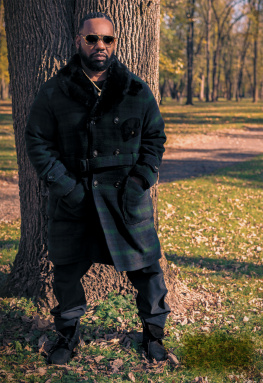
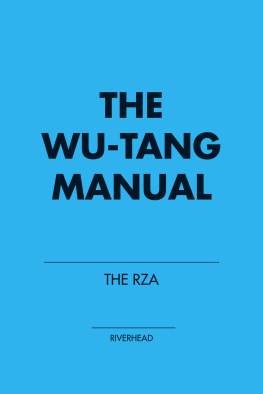

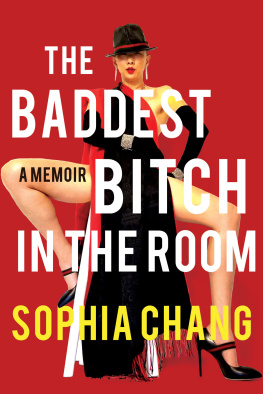
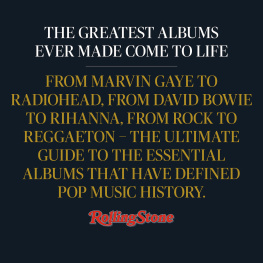
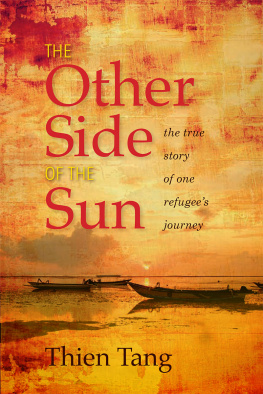
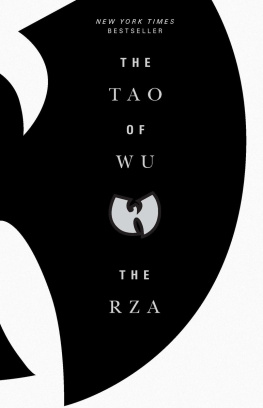
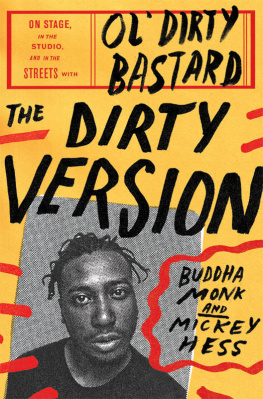
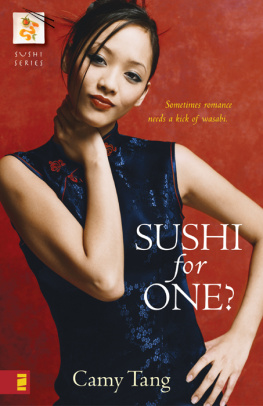


 @SimonSchusterUK
@SimonSchusterUK